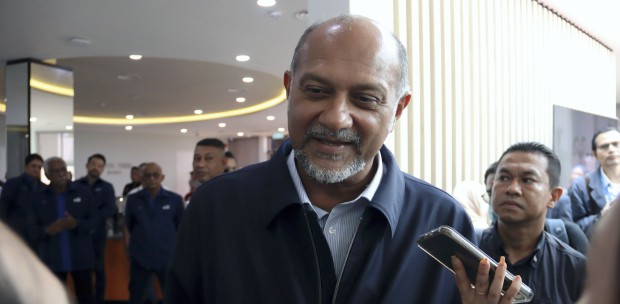THE seventy-five per cent of small and medium enterprises (SMEs) in the country that are not in the Goods and Services Tax (GST) system should volunteer to be included due to the many advantages that they can gain in the long term, said International Trade and Industry Minister Datuk Seri Mustapa Mohamed.
“Those (the 75 per cent) may lose their market share over time if larger firms decide to buy goods from businesses that are registered under the GST, so as to benefit from the input tax credits,” he said at the launch of a dialogue session with national associations and chambers of commerce at the ministry, here, yesterday.
It is estimated that almost 25 per cent of SMEs (about 160,000 businesses) would find themselves included in the GST system at the registration threshold value (sales value) of RM500,000 per year.
In a survey conducted by SME Corp Malaysia involving 2,079 respondents in the first quarter of the year, 84 per cent of SMEs indicated that they needed training on GST, 26 per cent said they needed access to GST-compliant software, and 25 per cent requested tax incentives for the upgrading of information communications technology (ICT) hardware and equipment.
The government has allocated RM150 million under 2014 Budget to help SMEs purchase GST-compliant accounting software or upgrade existing software.
In addition, it is also providing GST training grant and accelerated capital allowance for the purchase of ICT equipment and software.
Tax deduction on expenses for training is also provided while the corporate tax rate has been reduced from 20 per cent to 19 per cent from 2016.
“Engagements are done every week to identify the issues facing businesses,” he added.
Four memoranda with 19 issues were discussed yesterday.
They were from Associated Chinese Chambers of Commerce and Industry of Malaysia, Malaysian Employers Federation, Federation of Sabah Industries and Persatuan Pedagang and Pengusaha Melayu Malaysia.




